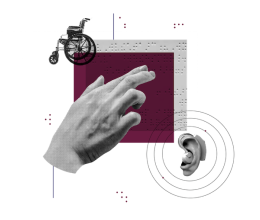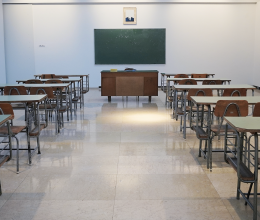Over the past year, I have blogged quite a bit about the consequences of mass incarceration for those in prison – they are separated from their communities, locked away under terrible conditions of confinement, and, upon release, subjected to legalized discrimination and denied basic constitutional protections - making it all the more likely they will someday be sent back to prison. However, what I have focused less on are the consequences for the family members of those incarcerated – those who are left behind when someone is sent away.
As the rate of incarceration has skyrocketed in recent years, so too has the number of children with a parent in prison or jail. According to a National Academy of Sciences report, the number of children with an incarcerated parent has more than quintupled in the last 40 years, from an estimated 350,000 in 1970 to over 2 million today. According to the report, this presents current and future challenges not only for families and our communities but also for our social service and educational systems.
Families with incarcerated parents have higher rates of homelessness, poorer developmental outcomes for the children in those families and greater likelihood of family instability. Children with an incarcerated parent face challenges when trying to maintain contact, as prisons are often located hundreds of miles from their homes and phone contact is expensive and often limited.
Children in families with an incarcerated parent are also more likely to end up in the state foster care system - further displacing these children and putting a fiscal strain on an already over burdened system. As women are often the primary or sole caretaker, this problem is becoming more and more acute as the number of incarcerated women in the United States continues to grow. Nationwide, the number of women in our prison and jails has grown by almost 650 percent. Of those women, 62 percent are mothers.
As the number one incarcerator in the world, the United States locks away more people than any other nation. However, those in prison are not the only victims of the system. The growth of our criminal justice system has come at a huge human cost to the family members of those incarcerated and to our communities. We need to act now to dismantle the system of mass incarceration. To read more about the ACLU’s work to end over incarceration check out the ACLU’s Smart Justice, Fair Justice campaign.






